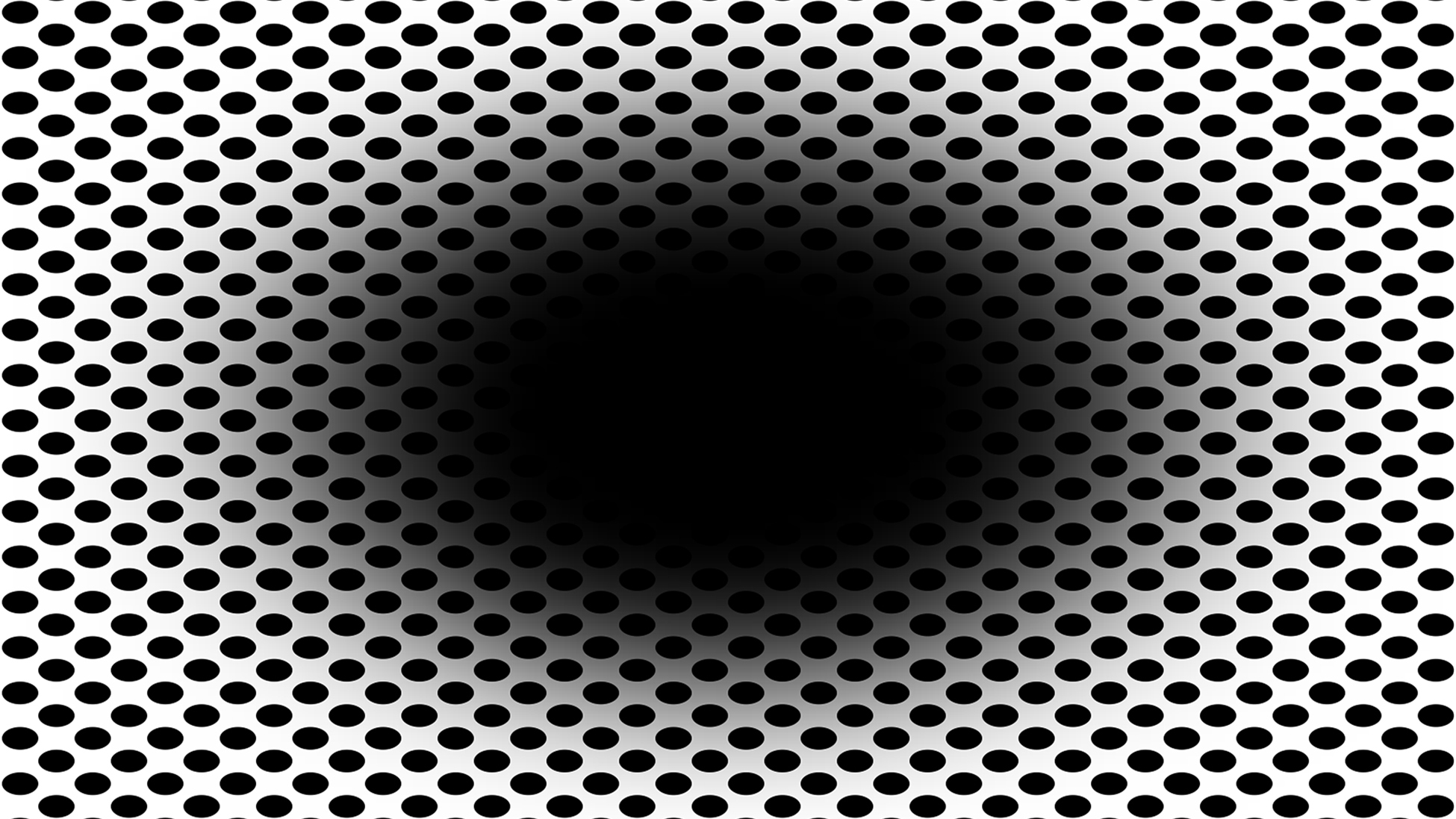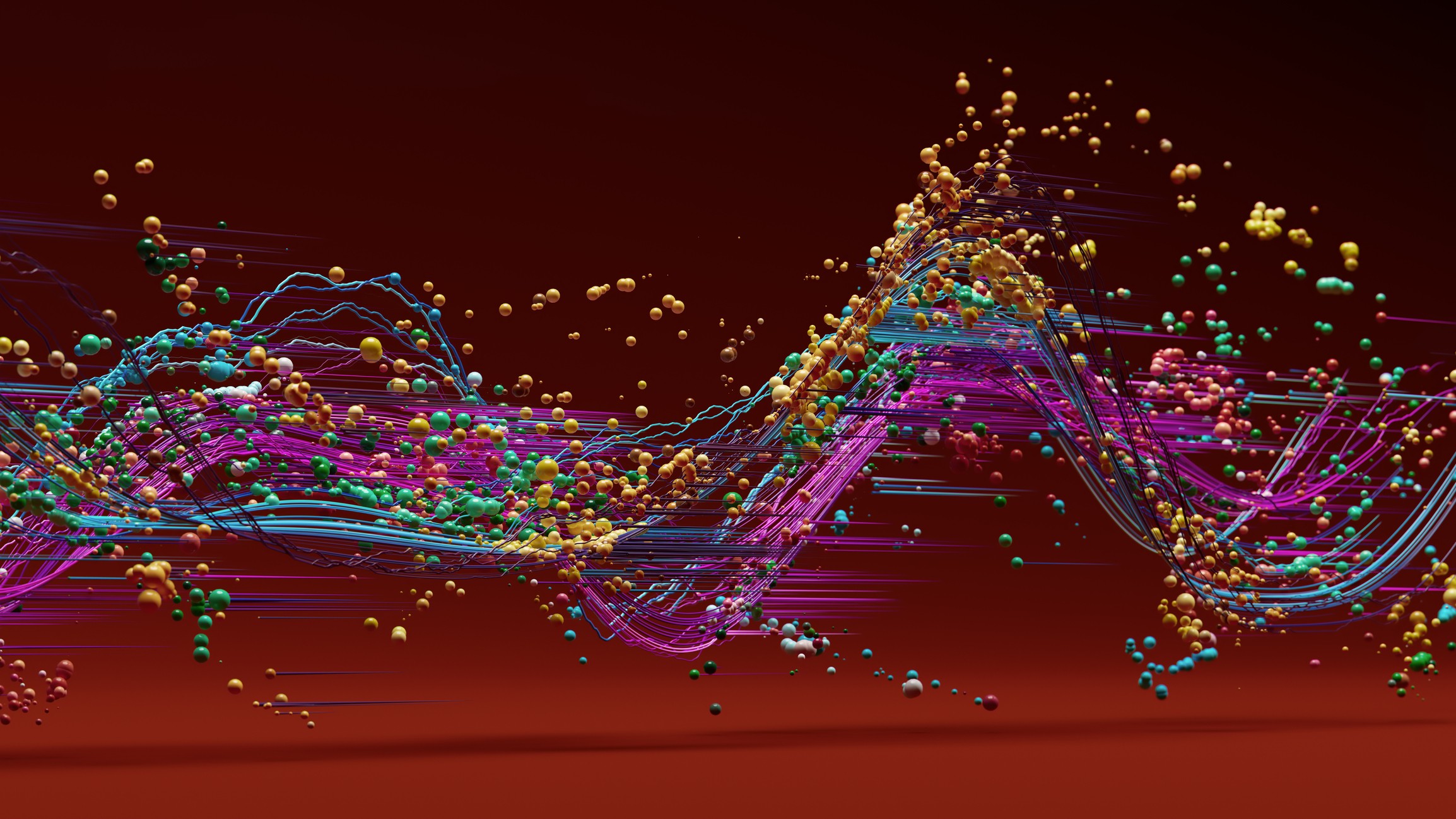How this trippy illusion will make you see an 'expanding black hole'
It seriously tricks your brain.
A brand new optical illusion tricks the majority of people into thinking that a dark "black hole" region at the center of a stationary image is rapidly expanding, as if the observer were moving toward it. Researchers now suspect that the image literally tricks the brain into thinking that the observer is moving into a darkened space, like a cave or tunnel.
The illusion consists of a large black ellipse surrounded by a dark halo on a white background filled with smaller black ellipses. Typically, as a person stares at the image, the dark elliptical region will appear to expand outward for a couple of seconds, which is why the design has been nicknamed the "expanding hole."
In a new study, researchers found that 86% of the 50 participants who looked at the optical illusion reported seeing the expanding darkness. The team suspects that the illusion plays on the brain's perception of changing light levels.
"The expanding hole is a highly dynamic illusion," lead researcher Bruno Laeng, a psychologist at the University of Oslo in Norway, said in a statement. The illusion tricks the mind into seeing a change in brightness that isn't really there, "as if the observer were heading forward into a hole or tunnel," Laeng added.
Related: A new type of optical illusion tricks the brain into seeing dazzling rays
The illusion hijacks a natural reaction in the brain that predicts when light is about to change, the researchers said. The dark region at the center of the image mimics the entrance to a cave or tunnel, and the surrounding pattern gives the observer the impression that they are moving toward that cave or tunnel. When the brain registers a potential change in light intensity, such as walking into a cave, it can trigger the pupils to contract or dilate to prepare you for the upcoming disruption in advance.
The illusion is so good at tricking the brain that it also causes people's pupils to dilate as if they were actually moving into a darker space. The researchers used special cameras to track observers' eye movements as they looked at the illusion, and the scientists found that their subjects' pupils were expanding just like the dark region of the illusion appeared to expand in their minds. Those who saw a bigger dark hole showed more dilation than those who saw a less-stark "black hole," the researchers said.
Get the world’s most fascinating discoveries delivered straight to your inbox.
"The illusion of the expanding hole prompts a corresponding dilation of the pupil, as it would happen if darkness really increased," Laeng said. This shows that "the pupil reacts to how we perceive light, even if this light is imaginary."
The researchers also exposed observers to versions of the illusions where the color of the ellipses had been changed. When this happened, the illusion's expanding effect was reduced and the observer's pupil dilations were less noticeable. And when the colors were inverted (placing white ellipses on a black background), the observers' pupils contracted, instead of expanding, as if they were moving toward a bright light.
The researchers have no idea why some people who look at the expanding hole are unable to see the dark region moving. The team hopes to test the illusion on other animals and see if they can learn more about how those visual systems differ from that in humans, to solve this mystery.
The new study was published online May 30 in the journal Frontiers in Human Neuroscience.
Originally published on Live Science.

Harry is a U.K.-based senior staff writer at Live Science. He studied marine biology at the University of Exeter before training to become a journalist. He covers a wide range of topics including space exploration, planetary science, space weather, climate change, animal behavior and paleontology. His recent work on the solar maximum won "best space submission" at the 2024 Aerospace Media Awards and was shortlisted in the "top scoop" category at the NCTJ Awards for Excellence in 2023. He also writes Live Science's weekly Earth from space series.
 Live Science Plus
Live Science Plus






